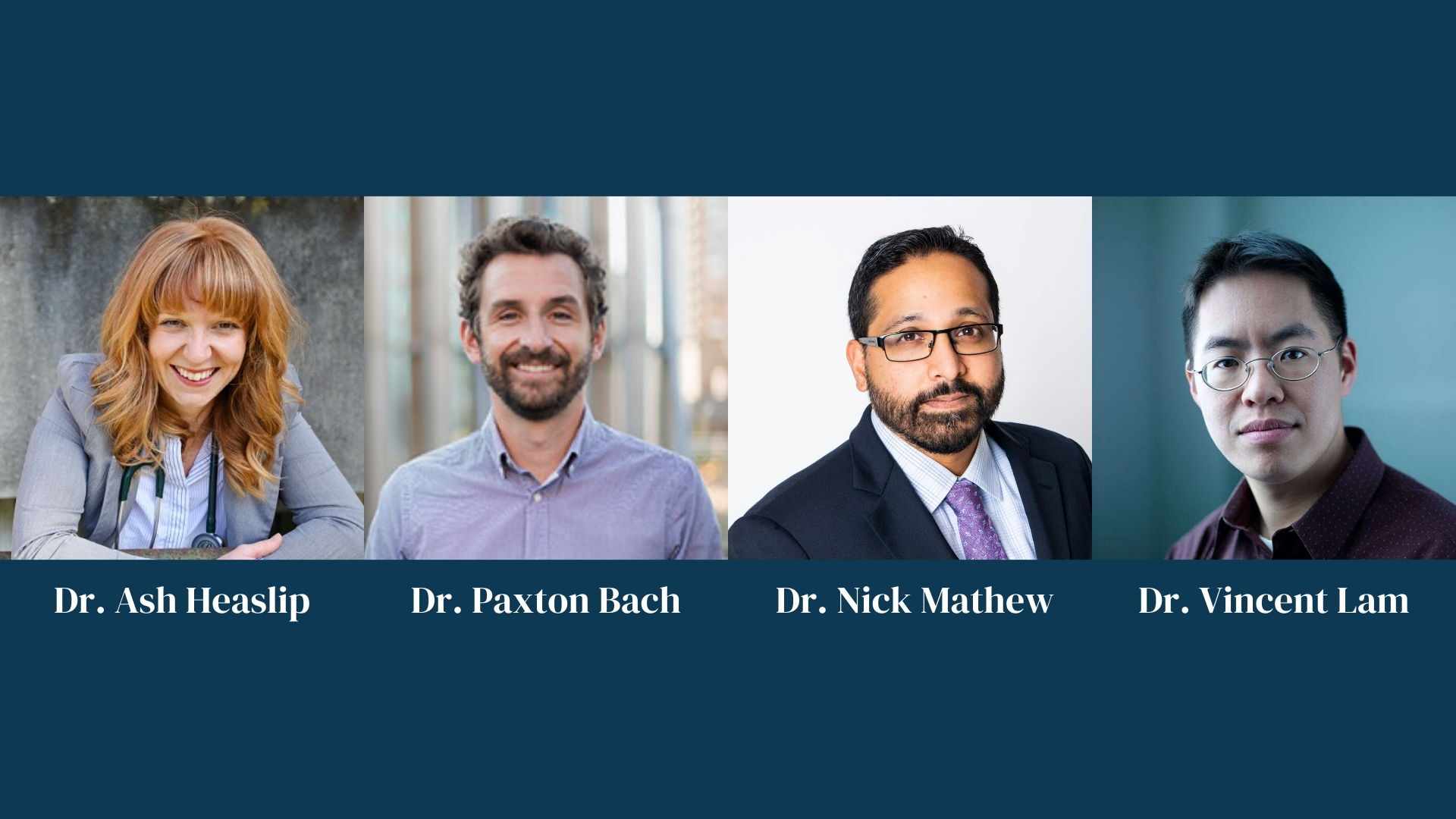CSAM-SMCA is a professional association of addiction medicine practitioners, and our mission is to advance the understanding and treatment of substance-related and behavioural addictions. One of the key priorities of our organization is to convene tables for dialogue and consensus-building on important issues facing addiction medicine practitioners. On Oct. 22, 2021 we convened a dialogue on the science of safe supply with four of Canada’s most respected addiction medicine practitioners working on the front lines of the opioid epidemic.
As part of our commitment to transparency and openness, we live-tweeted this important conversation. We were thrilled to see that those tweets encouraged a great deal conversation and debate online. As a result of the overwhelming interest in this discussion, we’ve made the video recording available to all Canadians. It is our hope that it will encourage further dialogue and consensus-building on the important issue of safe supply.
We have received criticism concerning the composition of this panel, specifically our decision not to include people with lived experience. We did not include people with lived or living experience on this panel because the conference attendees are primarily physicians and the focus of the dialogue was on the science of safe supply. We believe physicians are best positioned to discuss the science. All of our panelists care deeply about and work closely with people who use drugs, as do most CSAM-SMCA members. We have profound respect for the lived experience of people who use drugs, and we value the perspective they bring to our understanding of safe supply and addiction medicine as a whole.
About Our Panelists
The debate regarding provision of prescription-grade opioids outside of established OAT models is one of the most important current issues in the addiction medicine landscape. As part of CSAM-SMCA’s strategic goals, we offer a table for discussion to explore this issue and build consensus among Canadian addiction medicine practitioners.
Dr. Paxton Bach MD, MSc, FRCPC, FASAM is a Clinical Assistant Professor in the Department of Medicine at the University of British Columbia and a general internist and addiction medicine physician at St. Paul’s Hospital in Vancouver, BC. He additionally serves as the Co-Medical Director for the British Columbia Centre on Substance Use, and is the Director of the BCCSU Clinical Addiction Medicine Fellowship Program.
Dr. Ash Heaslip MD, MPH, PhD (candidate) is a practicing GP and addiction medicine physician in Victoria, BC. She is the addiction medicine medical director for Island Health, the Vancouver Island Health Authority. She also holds assistant professor positions with both the University of British Columbia and University of Victoria Medical Programs. She has a background in public health, obtaining a Masters of Public Health through the University of Toronto in 2009. She is passionate about health policy and clinical care for patients experiencing structural barriers to our healthcare system.
Dr. Vincent Lam MD CFPC Dr. Lam is an addictions physician, and previously worked as an emergency physician. He is the Medical Director of the Coderix Medical Clinic, a Lecturer at the University of Toronto, and a writer of fiction and non-fiction.
Dr. Nick Mathew MD, ABPN, FRCPC, ABPM completed an addiction psychiatry fellowship at Yale University and a forensic psychiatry fellowship at the University of British Columbia. He is board certified in addiction psychiatry, addiction medicine and forensic psychiatry. He is a clinical associate professor at the University of British Columbia. He is currently serving as the Medical Director of Complex Mental Health and Substance Use Services at the Provincial Health Services Authority.
Questions Posed to the Panelists
1. General: Do you or do you not believe that a Safe Supply model can save lives or improve other OUD treatment outcomes? What evidence is there to support your opinion?
2. Research: What are the most urgent research questions that need to be answered regarding a Safe Supply model and what data would you consider essential to answer these questions?
3. Clinical Issues: What are the current most significant risks and benefits of a Safe Supply model?
4. Policy: Vancouver City Council recently voted to support a federal application that would allow a “compassion club” model and provide tested drugs in the city. Assuming a confirmed, unadulterated source of heroin or another high potency opioid (and cocaine, and methamphetamine) were available and cities such as Victoria, Vancouver and Toronto adopted the model, generally speaking, what do you think the outcome would be?
5. Opinion: If you had the ability to instantly make a single change to the current national approach to the opioid crisis, what would it be?
The Canadian Society of Addiction Medicine is a national society of medical professionals and scientists committed to helping Canadians understand, accept, and recover from substance use disorders.
